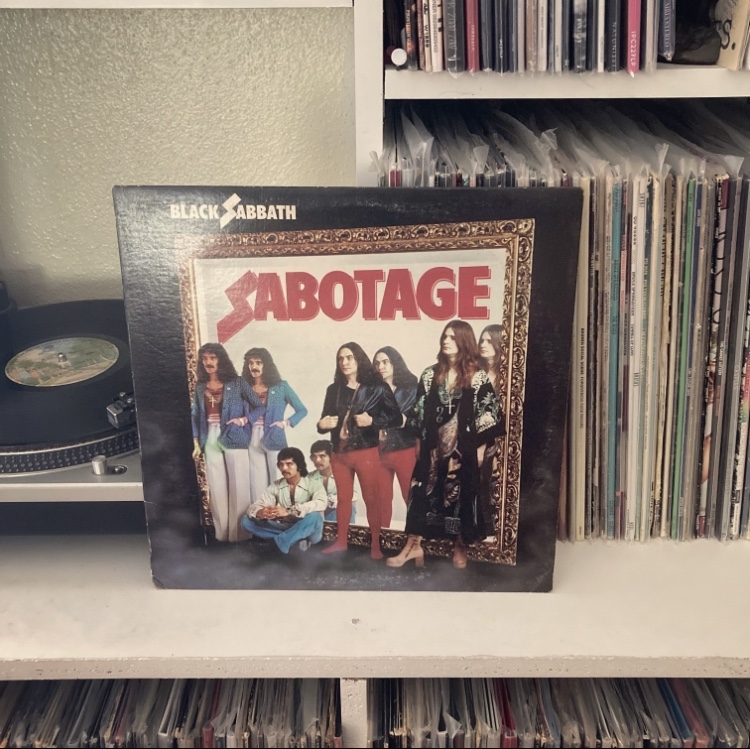
Over the last few years, I’ve been making a concerted effort to give Black Sabbath their due. After all, few other bands have such a dominating influence across an entire class of genre. Hundreds of bands are still trading their souls to make music as heavy as their First Six.
Sabotage is the final of this sextet, and I realize now that I’ve mistakenly believed it to be the first step in a downward trend. And while it may not be as untouchable as Master of Reality or Paranoid, it’s maybe the most adventurous of the First Six—and still just as heavy.
Black Sabbath were never strangers to experimentation. After all, their trademark sound was—at the time—a result of pushing the sound of electric guitar, bass, and drums to their limit. Even Iommi’s downtuning to drop D was at one point a revolutionary act.
So it really should be no surprise that they push the limits even further here, utilizing the capabilities of studio recording further than ever. So far, in fact, that it’s told that Ozzy once believed he had walked into the wrong studio when he saw the English Chamber Choir recording for the track “Supertzar.” “Am I Going Insane (Radio)” doesn’t even feature a notable guitar riff, its groove instead driven by a synthesizer (for the record, Ozzy hates the song).
But if you think any of that means this album isn’t heavy, you’re dead wrong. Not only does Sabotage feature some of Iommi’s heaviest riffs, it also sees Ozzy pushing his voice harder than ever before. This is especially true in opener “Hole in the Sky” and the menacing and dissonant “Symptom of the Universe.”
Behind the scenes, the band credits this violent heaviness to the legal battles that surrounded the sessions. Lawyers were present in the studio, negotiating a lawsuit between Sabbath and their previous manager and label. In hindsight, they claim that it distracted them from the writing process. But judging by the album, it sounds more accurate to say that recording gave them a release, because there isn’t a second here that sounds uninspired or half baked.
But the songs aren’t just louder and angrier. The instrumental segue “Don’t Start (Too Late)” features Iommi alone on acoustic guitar. “Megalomania” and closer “The Writ” are each prog metal opuses that weave heavy riffs and psychedelic experimentation around one another, nearly reaching the ten minute mark. “The Thrill of it All” is Led Zeppelin-esque in its exuberance. As an aside, Tony Iommi claimed that the recording sessions were marked with jams with members of Led Zeppelin, but there’s some dispute about the veracity of that claim.
In the end, is this the best Sabbath album? Certainly not. The tracks aren’t quite as memorable as those on the albums before it, and its best moments aren’t quite as indelible as those on earlier albums. But for metal fans seeking out essential Sabbath records, this album absolutely makes the cut. While they may have (so I’ve heard) taken a creative nosedive after this, Sabotage still sees Sabbath doing what Sabbath does best.